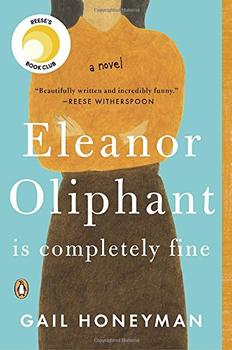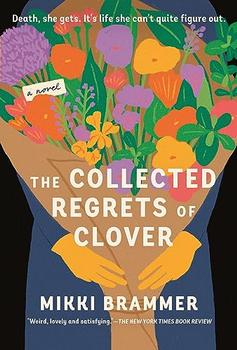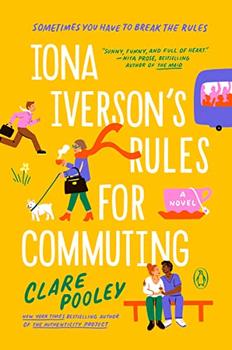Summary | Excerpt | Reading Guide | Reviews | Beyond the book | Read-Alikes | Genres & Themes | Author Bio

Eleanor Oliphant is, of course, completely fine. Because what else is she allowed to be? What other answer do you give to the question: "How are you?" Certainly not the real one. Certainly not when you have lived a life as damaging and fractious as that of Eleanor, and had to find your own way through it.
"The scalp massage at the hairdresser, the flu jab I had last winter – the only time I experience touch is from people whom I am paying, and they are almost always wearing disposable gloves at the time. I'm merely stating the facts. People don't like these facts, but I can't help that. If someone asks you how you are, you are meant to say FINE. You are not meant to say that you cried yourself to sleep last night because you hadn't spoken to another person for two consecutive days. FINE, is what you say."
Because she often doesn't recognize social norms, Eleanor Oliphant is told that she is a flawed misfit by the very people who were meant to look after her – her mother, social services, and foster families. She leads a controlled and isolated existence numbed by pizza, vodka, and a plant named Polly. Weekends are just empty spaces that break up the weekdays spent at a job surrounded by colleagues who mostly avoid her. These little routines keep her existing and muddling along.
Even if she is used to being alone, Eleanor recognizes that she's missing something. "There are days when I feel so lightly connected to the earth that the threads that tether me to the planet are gossamer thin, spun sugar. A strong gust of wind could dislodge me completely, and I'd lift off and blow away, like one of those seeds in a dandelion clock."
With no filters or ideas of social norms, Eleanor struggles to engage with other people. Excluded from water cooler conversations at work and communal gatherings, she has been so used to a solitary existence that she is baffled by the support from her colleague, Raymond. From how to order a drink to what family life can be like, from what to do when invited to a party to the etiquette of funerals, Eleanor learns a lot from Raymond. He brings Eleanor into a web of connections and she starts to slowly, accidentally, build relationships.
It's easy to laugh at Eleanor and how baffling she finds many things, but we might agree with the absurdities of the unspoken protocols of life she indirectly challenges. Through Eleanor's wry observations and uncensored honesty, Honeyman is able to question society. Take her assessment of the wedding gift list, for example. "Of all the compulsory financial contributions, this is the one that irks me most. Two people wander around John Lewis picking out lovely items for themselves, and then they make other people pay for them. It's bare-faced effrontery." The reader is also forced to ponder the dangers of loneliness and our attitudes toward those who seem to be outsiders. Although she sometimes takes pride in describing herself as a "sole survivor…a self-contained entity," isolation hurts, and Eleanor knows this.
Odd Eleanor slowly enters a life that she never thought was for her. She remains quirky and unique, and the reader loves her for it, but her life becomes a little more expansive and contains a bit more opportunity. Gail Honeyman published this novel as she entered her forties, after a lot of rejection. Just like her protagonist, Honeyman's life changed after many trying years. Eleanor may be a social misfit, but she is an incredibly astute one. Eleanor Oliphant is Completely Fine is perceptive, wise, funny and utterly readable.
![]() This review was originally published in The BookBrowse Review in June 2017, and has been updated for the
June 2018 edition.
Click here to go to this issue.
This review was originally published in The BookBrowse Review in June 2017, and has been updated for the
June 2018 edition.
Click here to go to this issue.

If you liked Eleanor Oliphant Is Completely Fine, try these:

The Collected Regrets of Clover
by Mikki Brammer
Published 2024
Mikki Brammer's The Collected Regrets of Clover is a big-hearted and life-affirming debut about a death doula who, in caring for others at the end of their life, has forgotten how to live her own, for readers of The Midnight Library.

Iona Iverson's Rules for Commuting
by Clare Pooley
Published 2023
From the New York Times bestselling author of The Authenticity Project comes an escapist read that will transport you, cheer you, and make you smile - and make you, too, wish you had Iona's gift for bringing out the best in everyone.
Your guide toexceptional books
BookBrowse seeks out and recommends the best in contemporary fiction and nonfiction—books that not only engage and entertain but also deepen our understanding of ourselves and the world around us.